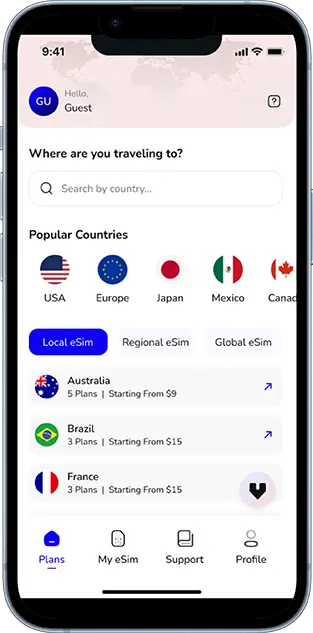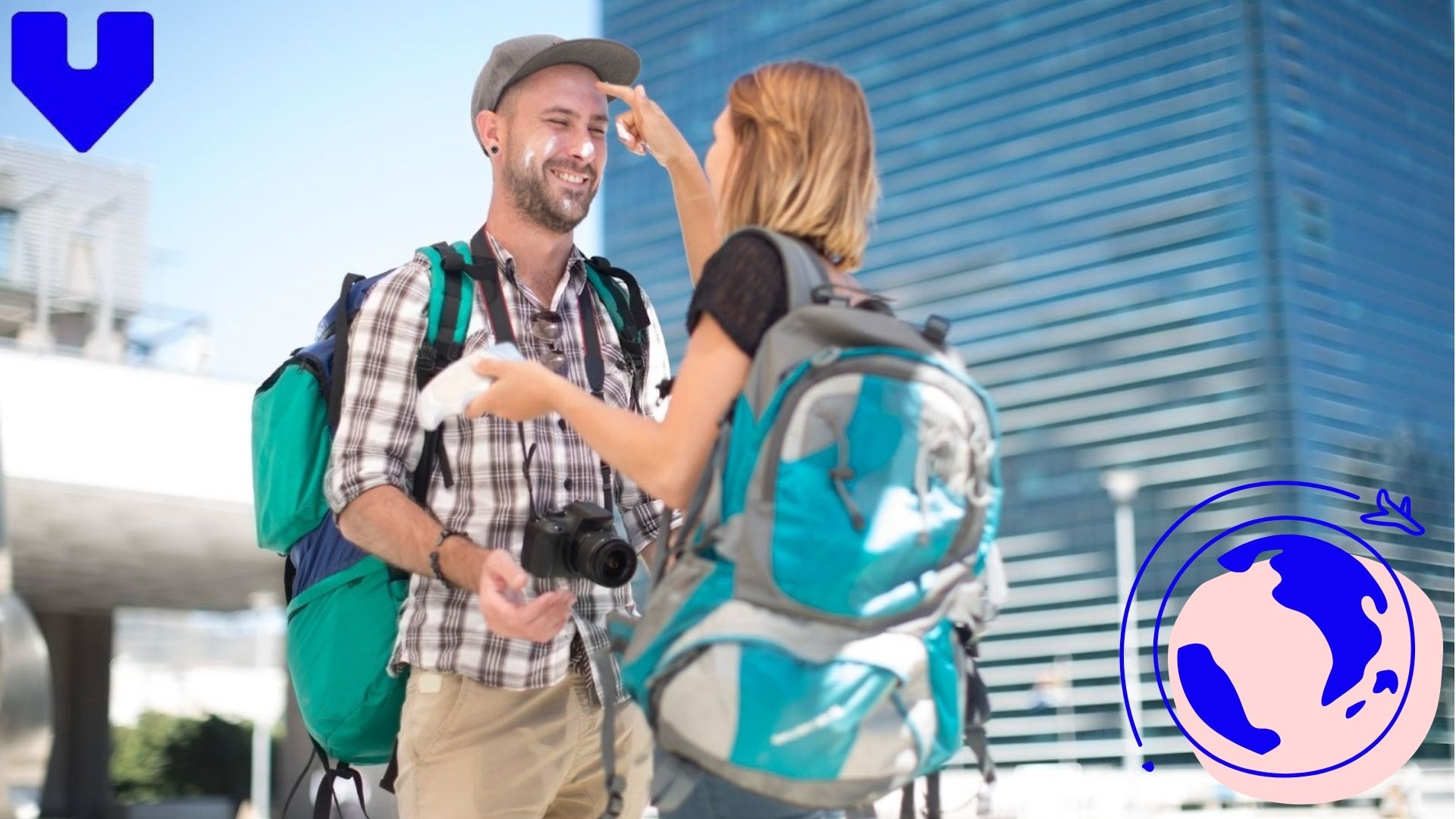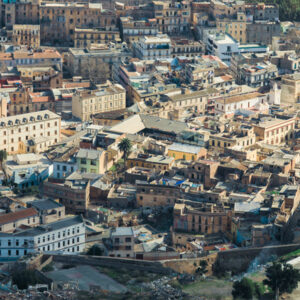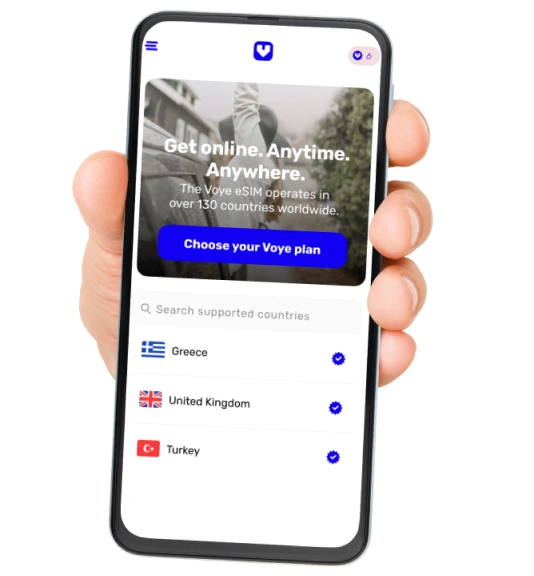Note that iPhone devices from Mainland China aren’t eSIM compatible. Also iPhone devices from Hong Kong and Macao aren’t compatible (except for iPhone 13 Mini, iPhone 12 Mini, iPhone SE 2020 and iPhone XS)
Algeria remains one of North Africa’s most underrated gems. From the sparkling Mediterranean coast to the vast silence of the Sahara, it blends history, culture, and natural beauty like few places on earth. Roman ruins meet French-style boulevards, desert oases shimmer between endless dunes, and lively cities like Algiers and Oran showcase the country’s vibrant pulse.
Yet Algeria is also one of the region’s most complex destinations. Infrastructure is limited, English is rarely spoken, and bureaucracy can challenge the unprepared. Unlike nearby Morocco or Tunisia, Algeria rewards travelers who plan carefully and respect its local rhythms.
This guide highlights the 10 most common mistakes tourists make in Algeria – and how to avoid them. Travel smart, adapt to the pace, and you’ll discover a country that’s not just seen but deeply experienced. For first-time visitors, our detailed Algeria Travel Guide offers insights into top cities, cultural etiquette, and travel tips to help plan your trip more efficiently.
Mistake 1: Ignoring Visa and Entry Requirements
Algeria has strict visa rules, and unprepared travelers often face delays or are even denied entry. Unlike many destinations with visa-free access, Algeria requires detailed documentation and advance applications.
Where tourists go wrong:
- Applying too late and expecting same-week approval.
- Not realising that hotel confirmations and itineraries are often required.
- Traveling with passports that don’t meet the six-month validity rule.
- Forgetting about multiple-entry visas when combining Algeria with nearby countries.
How to avoid this mistake:
- Begin your visa process at least one month before your trip.
- Double-check requirements with your nearest Algerian consulate, as paperwork can vary by nationality.
- Book at least your first few nights of accommodation in advance to show proof.
- Carry copies of all documents- passport, bookings, invitation letters- both digital and printed.
Algeria rewards those who respect its process. A little patience at this stage ensures your journey begins smoothly.
Stay Connected in Algeria
Enjoy seamless mobile data across cities and deserts of Algeria.
Mistake 2: Underestimating the Size of the Country
Algeria is Africa’s largest country, yet many travelers plan as if it’s the size of a small Mediterranean nation. Distances are long, public transport is limited, and driving times can be extensive.
Where tourists go wrong:
- Trying to see Algiers, Oran, Constantine, the Sahara, and Roman ruins in one week.
- Forgetting that bus and train journeys can take over 12-20 hours.
- Assuming road conditions are always good, in remote areas, routes may be slow.
- Overlooking how large the Sahara is, towns and oases are far apart.
How to avoid this mistake:
- Plan regionally: Focus on either the coast and cities or the desert, not both, in a short trip.
- Use domestic flights: Air Algérie connects major cities and saves days of overland travel.
- Build rest days: Algeria is not about rushing; give yourself breathing space.
- Be realistic: A 10-day itinerary is enough for Algiers, Tipaza, Constantine, and nearby areas. Save the Sahara for another trip if time is short.
Slow travel works best in Algeria. By focusing on fewer regions, you’ll gain a deeper, more authentic experience.
Mistake 3: Dressing Without Considering Local Customs
Though Algeria has modern cities, conservative dress remains the norm, especially outside urban centers. Dressing respectfully helps you blend in and creates more positive interactions.
Where tourists go wrong:
- Wearing shorts and sleeveless tops in rural towns.
- Forgetting that Algeria is a Muslim-majority country with modest dress norms.
- Packing only light summer clothes without options for layering in colder regions.
How to avoid this mistake:
- For men: Lightweight trousers and short-sleeved shirts are appropriate; avoid very revealing clothing.
- For women: Loose-fitting dresses or trousers with tops that cover shoulders and knees work well. Carry a scarf to cover your head in mosques.
- For everyone: Blend practicality with respect- long sleeves protect against sunburn in the desert while also meeting cultural expectations.
- Pack layers: The coast may be warm, but desert nights can be chilly.
Thoughtful dressing signals respect and makes your experience smoother and more enjoyable
Travel Smart with eSIM
Avoid public Wi-Fi and stay securely connected wherever you travel.
Mistake 4: Relying on English Alone
In Algeria, Arabic and French dominate. English is not widely spoken outside some hotels or tourist sites, and assuming otherwise often leads to communication barriers.
Where tourists go wrong:
- Arriving without any French or Arabic knowledge.
- Expecting hotel staff in smaller cities to speak English.
- Struggling in markets, taxis, or rural towns where no English is spoken.
- Missing cultural exchanges because of language gaps.
How to avoid this mistake:
- Learn a few key phrases: Even “hello”, “thank you”, and “how much” in Arabic or French, makes a difference.
- Download a translation app: Offline versions can save you when Wi-Fi is weak.
- Use body language and patience: Gestures and smiles help when words fail.
- Consider a phrasebook: Old-fashioned but useful for quick look-ups.
Even simple efforts, like saying as-salaam alaikum (“peace be upon you”), make locals more open and welcoming.
Mistake 5: Forgetting Climate Extremes
Algeria’s climate varies dramatically – from cool Mediterranean breezes in the north to intense Saharan heat in the south. Travelers who pack only for “hot weather” often find themselves uncomfortable.
Where tourists go wrong:
- Expecting only heat, even when visiting in December or January.
- Forgetting that desert nights can be freezing.
- Packing only shorts and T-shirts, leaving no warm layers.
- Underestimating the danger of midday desert heat in summer.
How to avoid this mistake:
- Check the season: Coastal cities like Algiers are mild in spring and autumn, damp in winter, and hot in summer.
- Pack layers: Lightweight clothes for the day, warm jackets for the night in the desert.
- Time your visit: Spring (March-May) and autumn (September-November) are the most comfortable.
- Stay hydrated: Heatstroke is a real risk when exploring dunes under the midday sun.
With the right gear, you’ll enjoy both coastal strolls and desert adventures comfortably.
Always Online, Anywhere You Go
Stay connected, share your journey, and navigate with confidence.
Mistake 6: Skipping Local Guides in the Sahara
The Algerian Sahara is breathtaking – but vast, remote, and not a place to navigate alone. Without local guidance, travelers risk getting lost or missing cultural depth.
Where tourists go wrong:
- Heading into desert areas without a licensed guide.
- Assuming GPS or maps are enough in regions with little infrastructure.
- Missing cultural knowledge, stories, traditions, and hidden gems only locals share.
- Underestimating the risks of sandstorms, dehydration, or getting lost.
How to avoid this mistake:
- Hire experienced guides: Towns like Tamanrasset, Ghardaïa, and Djanet have professionals who know the terrain.
- Book through local tour operators: Many include camels, 4×4 vehicles, and safe desert camps.
- Learn from locals: Guides often share Tuareg customs, music, and food, adding depth to the experience.
- Prioritise safety: Traveling with those who understand the desert ensures emergencies can be handled.
Local guides turn a beautiful landscape into a living story – and ensure your safety in unpredictable conditions.
Mistake 7: Mismanaging Money Matters
Algeria remains a cash-based economy. Credit cards aren’t widely accepted, and ATMs can be limited.
Where tourists go wrong:
- Bring little cash and expect card payments everywhere.
- Forgetting that small shops, taxis, and markets deal only in cash.
- Struggling with large banknotes when trying to buy inexpensive items.
- Exchanging money at poor rates or in unapproved places.
How to avoid this mistake:
- Carry Algerian dinars (DZD): Cash is essential for daily spending.
- Break larger bills: Keep small notes handy for transport and street food.
- Use official exchange offices: Avoid street exchangers to reduce risk.
- Budget realistically: Algeria is affordable, but costs can add up in cities and remote areas.
Managing cash wisely means you’ll never be caught short, even in remote towns.
Mistake 8: Depending on Public Wi-Fi
Internet access in Algeria can be unreliable, especially outside major cities. Many travelers expect strong café or hotel Wi-Fi and are frustrated by slow or patchy connections.
Where tourists go wrong:
- Relying on hotel Wi-Fi for important bookings.
- Logging into sensitive accounts (banking, email) over unsecured networks.
- Assuming rural areas or smaller towns will have consistent internet.
- Losing time trying to find free connections instead of exploring.
How to avoid this mistake:
- Use a mobile data solution: An eSIM for Algeria from Voye Global gives reliable coverage across Algeria without hunting for Wi-Fi.
- Plan offline backups: Download maps and key travel info before leaving cities.
- Avoid risky logins: Don’t enter financial information on public networks.
- Stay flexible: Even with data, expect occasional slowdowns in remote areas.
Reliable connectivity keeps your trip smooth and safe – especially for navigation, communication, and bookings.
Mistake 9: Ignoring Local Rhythms and Timetables
Algeria operates on a slower, more flexible rhythm than many Western countries. Trains and buses can be delayed, and daily routines change during Ramadan or midday breaks.
Where tourists go wrong:
- Complaining when buses leave late or only when full.
- Forgetting that many shops close midday and reopen in the evening.
- Overlooking the major impact of Ramadan on daily routines.
- Scheduling too tightly, leaving no room for delays.
How to avoid this mistake:
- Be patient: Accept that waiting is part of the journey.
- Adapt your plans: Shop in the evenings, travel early in the day.
- Plan for Ramadan: Expect slower days and vibrant nights.
- Leave buffer time: Don’t book back-to-back activities on the same day.
Once you accept Algeria’s relaxed pace, you’ll discover the beauty of unhurried travel – where moments and interactions matter more than schedules.
Instant Setup, Instant Travel
Activate your eSIM and enjoy effortless connectivity from the moment you land.
Mistake 10: Rushing Instead of Immersing
Algeria isn’t a checklist destination. Trying to see too much too quickly often leads to exhaustion and missed opportunities for connection.
Where tourists go wrong:
- Spending only a day in major cities like Algiers or Oran before moving on.
- Viewing the Sahara as a quick stop for photos instead of an immersive journey.
- Missing cultural opportunities such as music, festivals, or traditional meals.
- Prioritising quantity of destinations over quality of experiences.
How to avoid this mistake:
- Slow your pace: Dedicate at least two or three days per city or region.
- Mix destinations: Combine urban visits with smaller towns or villages.
- Join cultural events: Festivals, markets, and street performances give deeper insight.
- Engage with locals: Conversations over mint tea often reveal more than any guidebook.
Slow travel turns Algeria from a place you visit into one you experience. For seasonal inspiration, read Algiers in October: Casbah Walks & Seafront Evenings to discover how to enjoy the city’s calm weather, local culture, and scenic charm at a slower pace.
Conclusion
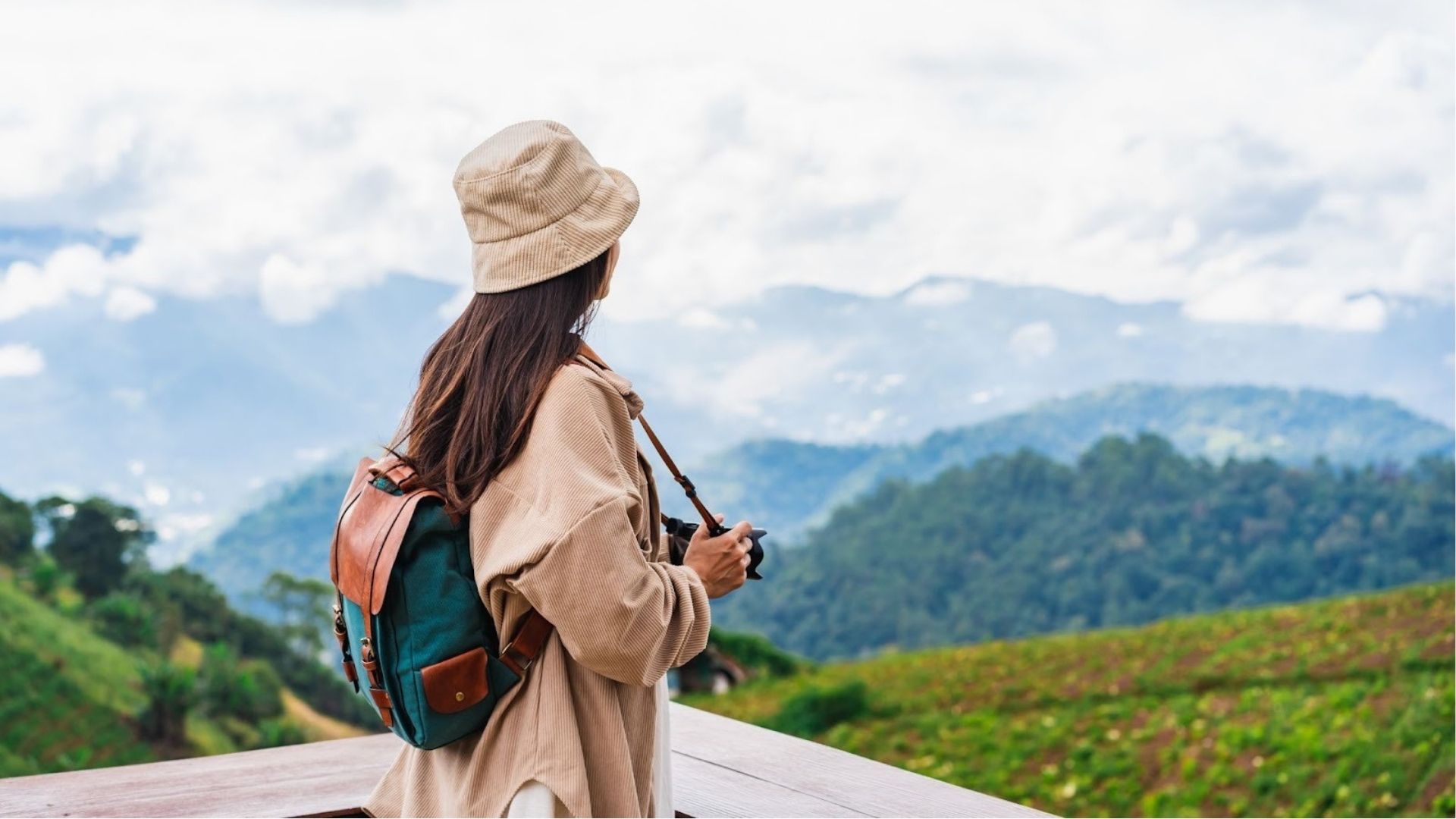
Algeria is not a destination for the impatient traveler. It rewards preparation, cultural respect, and adaptability. From securing your visa early to dressing modestly, carrying enough cash, and allowing flexibility in your plans, every thoughtful step ensures a smoother experience. The challenges many travelers face here are not obstacles but reminders – Algeria’s value lies in its authenticity, not convenience. When you embrace its pace and traditions, you uncover a country of immense beauty, layered history, and genuine hospitality.
To make your journey even easier, stay connected with Voye Global’s eSIM for Algeria. It offers instant mobile data without the hassle of local SIM cards or unreliable Wi-Fi, helping you navigate, translate, and share moments wherever you go. Traveling smart and respectfully means you won’t just see Algeria – you’ll truly experience it.
Frequently Asked Questions
1. How can Voye Global’s eSIM help me while traveling in Algeria?
Voye Global’s eSIM gives you instant mobile data without buying a local SIM card. You can stay connected from the moment you land, making it easier to use maps, book transport, and stay in touch securely.
2. What is the best time of year to visit Algeria?
Spring (March to May) and autumn (September to November) are ideal. The weather is pleasant, the desert is manageable, and the coast is comfortable without extreme heat or winter dampness.
3. Why should I choose Voye Global over a local SIM in Algeria?
With Voye Global, you avoid queues at phone shops and confusing paperwork. Activation is quick, coverage is strong across regions, and you keep your travel smooth without relying on public Wi-Fi.
4. Which cities are a must-visit for first-time tourists in Algeria?
Algiers for its Casbah and French colonial architecture, Oran for its music and Mediterranean vibe, Constantine for its dramatic bridges, and Ghardaïa for desert culture.
5. How do I activate Voye Global’s eSIM before landing in Algeria?
Activation is simple: scan the QR code provided, and your eSIM connects automatically. You’ll have data ready when you arrive- no physical SIM swap required.
6. Is Algeria safe for solo travelers?
Yes, with preparation. Stick to well-known routes, avoid remote desert areas alone, respect local customs, and use licensed guides. Algerians are generally welcoming, especially to respectful visitors.
7. Can I keep my home number while using Voye Global in Algeria?
Yes. Your eSIM runs alongside your existing number. You can keep your usual phone line for calls while using Voye Global for reliable data.
8. What food should I try when visiting Algeria?
Couscous with lamb or vegetables, chorba (a warming soup), brik (crispy pastry with egg), and makroud (semolina pastries with dates) are unmissable. Street-side mint tea is also part of the experience.
9. How does Voye Global ensure reliable service in Algeria?
Voye Global connects to multiple local networks, giving you coverage even if one signal is weak. This ensures consistent connectivity whether you’re in Algiers or exploring desert regions.
10. What cultural festivals in Algeria are worth attending?
The Timgad International Music Festival, Sahara Tuareg cultural events, and Algiers’ theatre and film festivals are highlights. They showcase the country’s rich artistic traditions.

Seamless Mobile Data Everywhere
